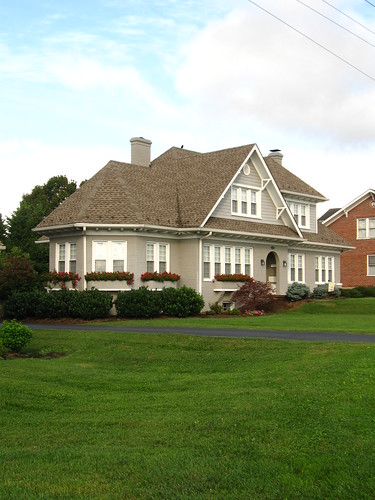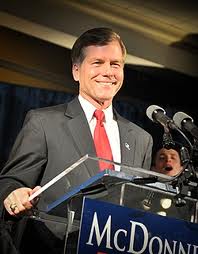The Perfect Example of Basic City is Basic City
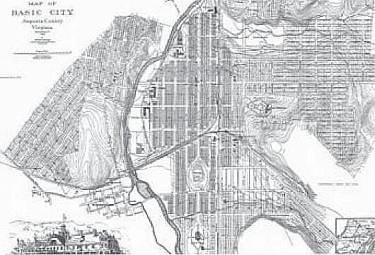 Basic City, laid out in 1890, eventually became the Eastern portion of modern Waynesboro.
"If the intelligence of a city can arise from the circuitry of its streets, then the street grid made a genius out of New York. In 1811, three state commissioners laid down Manhattan’s rectangular blocks. From First Street to 155th Street south to north and First Avenue to Twelfth Avenue east to west, their new grid obliterated the old lanes and farmhouses dotting the Manhattan countryside north of Houston Street, with few exceptions. Yet in trading away its past, the city built its future. The grid became the urban version of a super computer, a chipset to super-charge the city’s growth." -- James Panero
Basic City, laid out in 1890, eventually became the Eastern portion of modern Waynesboro.
"If the intelligence of a city can arise from the circuitry of its streets, then the street grid made a genius out of New York. In 1811, three state commissioners laid down Manhattan’s rectangular blocks. From First Street to 155th Street south to north and First Avenue to Twelfth Avenue east to west, their new grid obliterated the old lanes and farmhouses dotting the Manhattan countryside north of Houston Street, with few exceptions. Yet in trading away its past, the city built its future. The grid became the urban version of a super computer, a chipset to super-charge the city’s growth." -- James Panero
James Panero explores
The Greatness of the Grid [click to read] in
City Journal, discssing the 1811 plan that defines Manhattan today, a city who's first commissioners could hardly have envisioned. The grid they laid down has become a tool for the design of this great metropolis along with some important intrusions such as Broadway and Central Park.
The American city that developed in the Nineteenth Century almost exclusively is built around the grid and interesting variation overlaying it. Washington DC is basically the grid overlaid with the Hunting Gardens of Versailles. Philadelphia has its squares. Small cities have their courthouse squares and pre-planned parks, such as those in Basic City, Virginia, now the Eastern portion of Waynesboro. Harrisonburg, Virginia's Romanesque Courthouse dominates a central square and becomes iconic.
San Francisco's topography intrudes nicely into the grid and here is where true urban genius can be seen. It is the variations that make it magnificent. Intrusion is what is missing in some of the more mundane grid cities of the plains.
Hopefully there is a lesson here that might enliven our future economic development efforts. The grid was a great engine of planning and in the end created better design than a lot of our modern 'Town Centers,' which are nothing more than
Brobdingnagian cul-de-sac neighborhoods with ample parking.
Early Incubator of Innovation and Industry
The founders of Basic City looked at the converging railroads and saw an opportunity to develop a steel industry. The
Basic City Mining, Manufacturing and Land Company laid out an ambitious city grid. A Natural Gas Company, founded in 1891, even drilled a test oil well which failed to produce. The great blast furnace envisioned by founder Jacob Reese never was finished. The Panic of 1893 ended the first era of optimism.
Other industries did rise and flourish however. The
Dawson Manufacturing Company built the first automobile to be built in Virginia, a steam powered automobile! In the Twentieth Cenutry the great Dupont plant employed thousands. Today the region still stands at the crossroads of major transportation arteries and has the opportunity to design itself as a center of economomic activity for the Twenty-first Century.
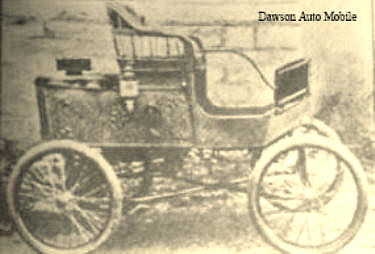 Steam powered car built by Dawson Manufacturing Company in Basic City.
Steam powered car built by Dawson Manufacturing Company in Basic City.
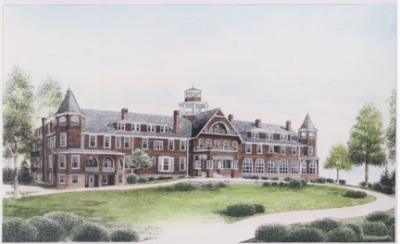 Fairfax Hall, originally the Brandon Hotel, once lured visitors to Basic City. Drawing by Bob Kirchman.
Fairfax Hall, originally the Brandon Hotel, once lured visitors to Basic City. Drawing by Bob Kirchman.






